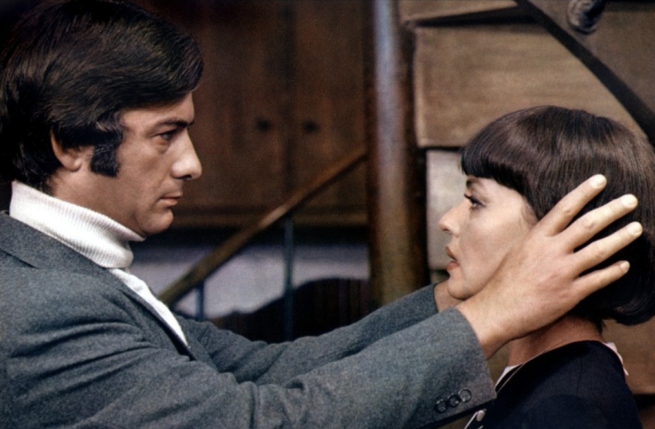"I am Julie Kohler."
Revenge films are slightly exploitative. They play on our attachments to good people by dropping them into horrific situations. Once we see these characters get violated, we often are thirsty for vengeance, a vengeance that must be achieved by any means necessary. Having this appeal allows us to ride along with our protagonists as they throw their moral conscience to the wayside and draw blood from those who did them wrong. Despite my interest in getting redemption, I often find myself asking one question: “What’s the price of revenge?” This question is often overlooked in most revenge films, especially the exploitation films that littered the 60’s and 70’s. Our characters don’t think twice about the violence that will be committed, nor do we as an audience. We gleefully follow along because we know those villains deserve it. Or do they? In most cases, the heinous acts done to protagonists in film are worthy of bloodshed, but can we knowingly go down a road to retribution if the motives of evildoers are ambiguous?
Ambiguity can lead to moral conflict, and this is undoubtedly something we feel in Francois Truffaut’s The Bride Wore Black, an homage to the films of Alfred Hitchcock. Featuring shots that are reminiscent of a Hitchcock film melded with Truffaut’s New Wave sensibilities, The Bride Wore Black is a complex revenge film with a dash of sexualized thrills. Much like Kill Bill, which is eerily similar, Bride tells the tale of a woman whose husband was murdered on their wedding day. Unlike Kill Bill though, Truffaut examines the repercussions of revenge on not only the seedy individuals who are about to be struck by wrath personified, but also the revenge seeker. The woman in question is Julie Kohler (Jeanne Moreau) who, after failing to commit suicide, sets her sights on the five men she believes killed her husband. One by one she meets each of the culprits as she uses her sex appeal to rope them in. Once she has a grip on her victims, Julie tactfully uses the environment to issue a death blow.
Although the counter attacks by Julie are usual fodder for revenge films, Bride is atypical to all of the films with a redemptive streak. In exploitation films, and in most revenge films in general, we’ve seen the act that sets the protagonist off, but Truffaut plays his cards close to the chest. Slowly, but surely the actual events that surround the murder of Julie’s husband are revealed, and they’re done so in a way that makes us uneasy in Julie’s destruction of other human beings because the details are not entirely known. As a matter of fact, we only know as much as she does: the name of the victims and their whereabouts. Through the impeccable guidance of Truffaut and the calculated performance of Moreau, there is not only doubt in ourselves, but in Julie as well. This makes the deaths of the men who haunt Julie’s mind feel unfulfilling. Actually, they seem far more barbaric considering the details are more like silhouettes than anything completely distinguishable. Unfortunately, this is a notion that escapes Julie at first glance. In her first kill, she seems to garner some satisfaction, but as she moves along her hit list, she finds that more resides behind the men than their name on a death list.
Regardless of the taut chase Truffaut constructs, there is one particular aspect of the film that most viewers can’t get past and that’s the knowledge Julie possesses over her husband’s killers. More specifically, how she tracked down five men she possibly couldn't have seen moments after her husband’s murder. Normally I’d want some idea as to how this came about, but ultimately it’s a minor problem that works within the context of Julie’s ambiguous death march. We don’t know everything. Instead, we move forward under the guise that we know enough to justify Julie’s vindictive acts. The same can be said for Julie. She keeps working down her list, hoping what she’s doing can be rationalized as a victim’s response. With there being a lack of truth until the end, revenge doesn’t become a cathartic act. In reality, it becomes a burden to everyone involved.


No comments:
Post a Comment